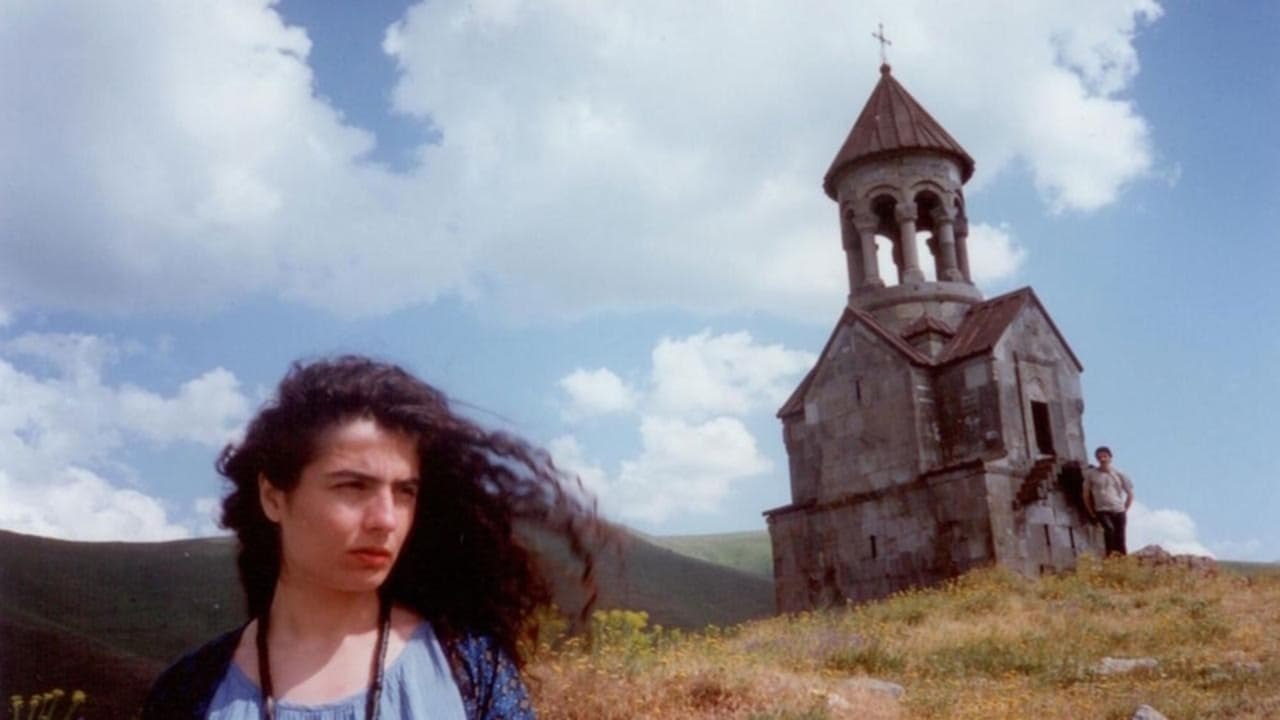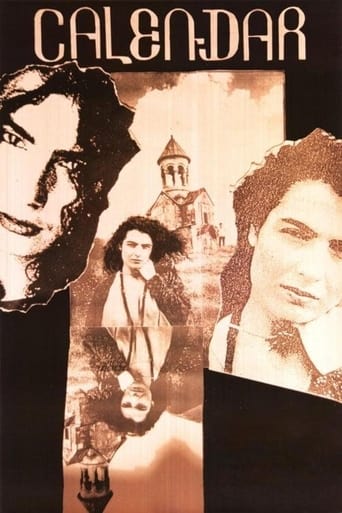




That was an excellent one.
a film so unique, intoxicating and bizarre that it not only demands another viewing, but is also forgivable as a satirical comedy where the jokes eventually take the back seat.
View MoreA film of deceptively outspoken contemporary relevance, this is cinema at its most alert, alarming and alive.
View MoreThis movie feels like it was made purely to piss off people who want good shows
View MoreA photographer and his wife take photographs of Armenian churches for use in a calendar. Their driver, a local resident, expounds on the history of the churches while the wife translates. The photographer becomes jealous of his wife's bonding with the driver.This film seems to have near-universal acclaim, with one exception: a reviewer at a certain Washington newspaper who found the film to be too intelligent for the average viewer. Really? The plot is not that hard to follow, and you know what else? Not all movies need to be mindless entertainment.I applaud Egoyan for making smart, and still good-looking, film. I have now seen most of what he has made, and I can't say he has really let me down yet. Some are better than others, but there are no duds. And this is far from a dud.
View MoreI don't usually give movies a rating of 1. Normally I have the good sense not to sit through movies that I'm going to hate. However, in this case the filmmaker was Atom Egoyan so I decided to bear it out.Calendar is one of those films which hangs in time. The events on the screen are initially incomprehensible to us, but as the plot drags on, the same basic scenes are repeated again and again, each time casting new light on the relationship between the protagonist and his wife.Egoyan seems to have a love affair with European languages. A large portion of the film is spent listening to women of various nationalities jabbering on the phone (without being able to understand what they are saying).Then there are the scenes where Egoyan films his wife's trip to Armenia. The whole episode is deliberately constructed to play like a home movie. The subtle nuances in these scenes are overshadowed by the fact that the scenes themselves are boring.A large part of the home video is spent having Egoyan's wife translate one character's narratives from Armenian to English. The last film I saw with that plot device was Godard's "Contempt" and I hated it then as well.Egoyan even ridicules this plot device in a subsequent scene when his photographer character spends several minutes (onscreen) videotaping a man talking without having any conception of what he is talking about.There is a section in the middle of the film where the plot seems to accelerate. We see the distance forming in the relationship between Egoyan and his wife; meanwhile, Egoyan opens up to his date about the Armenian foster child he supports.At this point, I had mentally upgraded my evaluation of the film to at least a 2. But shortly thereafter, the film reverted to its previous boring tone.
View MoreI have to speak out at how mediocre I felt this film to be. It has some creative gestures, such as the use of the calendar sequence and the once a month dinner dates, but these wore thin; I found the film not to be dynamic and highly predictable, if not in its outcome then at least in its process. The dialogue lacks, consisting mostly of monologues. It can be perceived as poignant and inventive, but not nearly enough to redeem it.
View MoreThis is a wonderful little film that I recently saw on a friend's recommendation, knowing virtually nothing about it except that I'd immensely enjoyed Atom Egoyan's "Exotica" and "the Sweet Hereafter". "Calendar" is not nearly as tragic as those two films; it concerns itself with the sadness of the disintegration of a relationship, but there is a subtle comedy to the film as well. The film is an experiment with a very specific, rigid, yet somehow apt structure: the film has twelve segments, one for each page of a beautiful calendar hanging by its photographer's phone. Laced into this structure is the story of the photographer and his wife's trip to Armenia, and the conflict that arises out of their different reactions to being in the land of their ancestry. It's all very well-told, and even though there is an element of inevitability, reinforced by the structure, the film never really strays into the realm of predictability. Finally, there are moments when the film seems to toy with breaking the sanctity of the fourth wall. This goes beyond the fact that the photographer and his wife are actually played by Mr. Egoyan and his wife. It's impossible to describe briefly and without spoiling the humor, though. If you're intrigued, check it out! You'll be glad.
View More